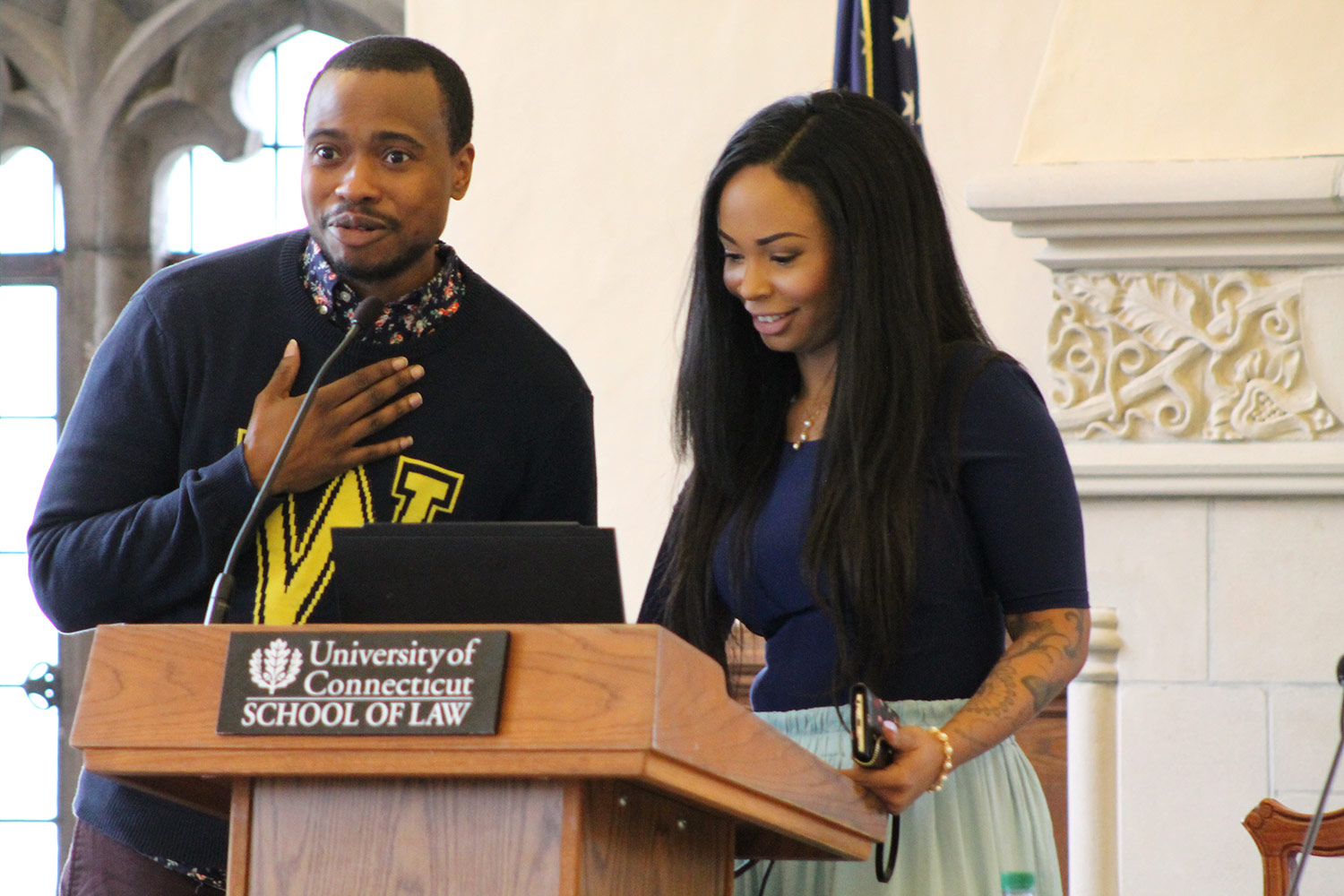The legal community’s focus on such victories as same-sex marriage obscures the challenges that LGBTQ people continue to face on many fronts, Kim Katrin Milan told the audience at the 2016 Connecticut Public Interest Law Journal Symposium.
Real issues of homelessness, violence and discrimination in the workplace persist, and many gender diverse people are struggling for basic rights, said Milan, co-founder and executive director of The People Project, and her husband, Tiq Milan, a writer, activist and spokesperson for GLAAD. Together, they delivered the keynote address at the March 4 symposium, entitled LGBTQ Youth and the Law.
Ninety percent of transgender Americans report experiencing harassment or discrimination at work, and 19 percent report being refused medical care because of their gender identities, Tiq Milan said. “If that was happening to heterosexual people, if 90 percent of heterosexual people were being harassed on the job, it would be a national emergency,” he said.
“It’s not enough just to say that I don’t have a problem with LGBTQ people. It’s not enough to say that that’s not an issue,” Kim Katrin Milan said. “I don’t want to just be tolerated. That’s not exciting for anyone. I really want to be genuinely celebrated, a part of your community, because I genuinely celebrate others as a deep and necessary part of my community.”
The March 4, 2016, symposium was sponsored by the Connecticut Public Interest Law Journal and the Connecticut Bar Foundation to discuss effective representation of LGBTQ youth in areas such as education, homelessness, foster care and the juvenile justice system.
The keynote speakers said many LGBTQ young people do not have the advocates and support they need and are three times more likely than other children to be sanctioned in schools and to be involved in the juvenile and criminal justice systems. The aim, they said, must be not just to change the law but to also change attitudes to make both school and work environments safer for LGBTQ people.
Speakers on the three panels discussed the problems raised in the keynote speech and considered solutions, including working for greater recognition of the problems that exist, fostering a greater understanding of gender diversity and helping youth find a bigger voice.
Several LGTBQ high school students in the audience also talked about their experiences. All reported receiving strong support from friends, family and schools and spoke confidently of looking forward to bright futures. But they stressed the need for greater understanding from other quarters, including from some of their teachers.
UConn School of Law was an appropriate venue for the discussion, Dean Timothy Fisher said in his opening remarks, because it “goes so much to the heart of who we are.” The way to make progress as a society is “by building connections between people, bridges between communities,” he said.
Watch the keynote address and a panel discussion on The Connecticut Network.



